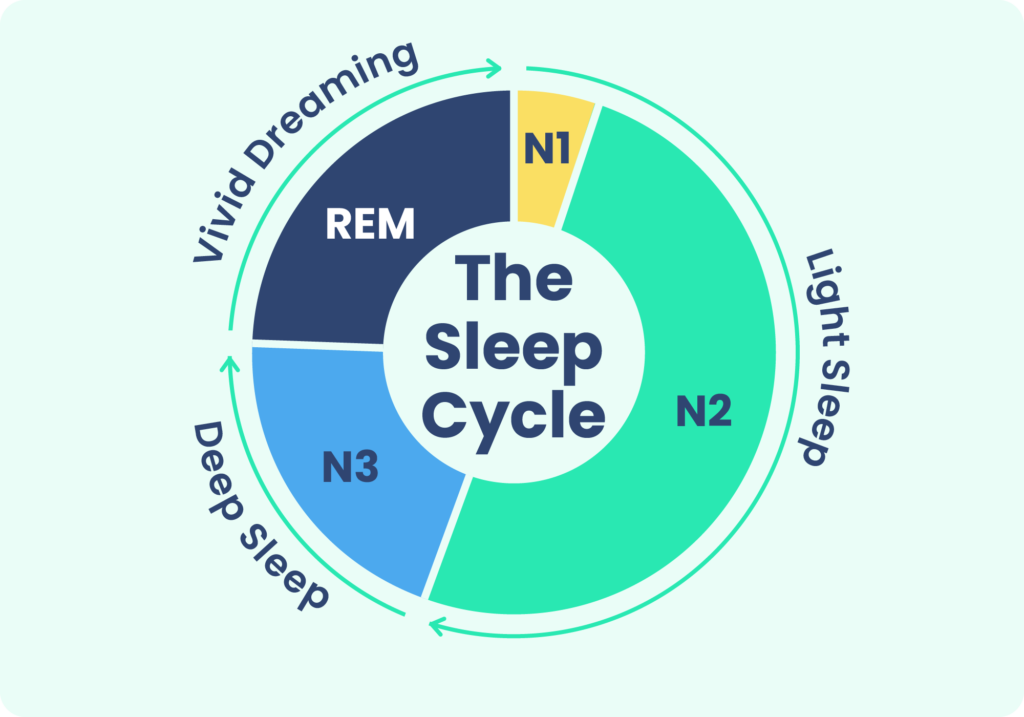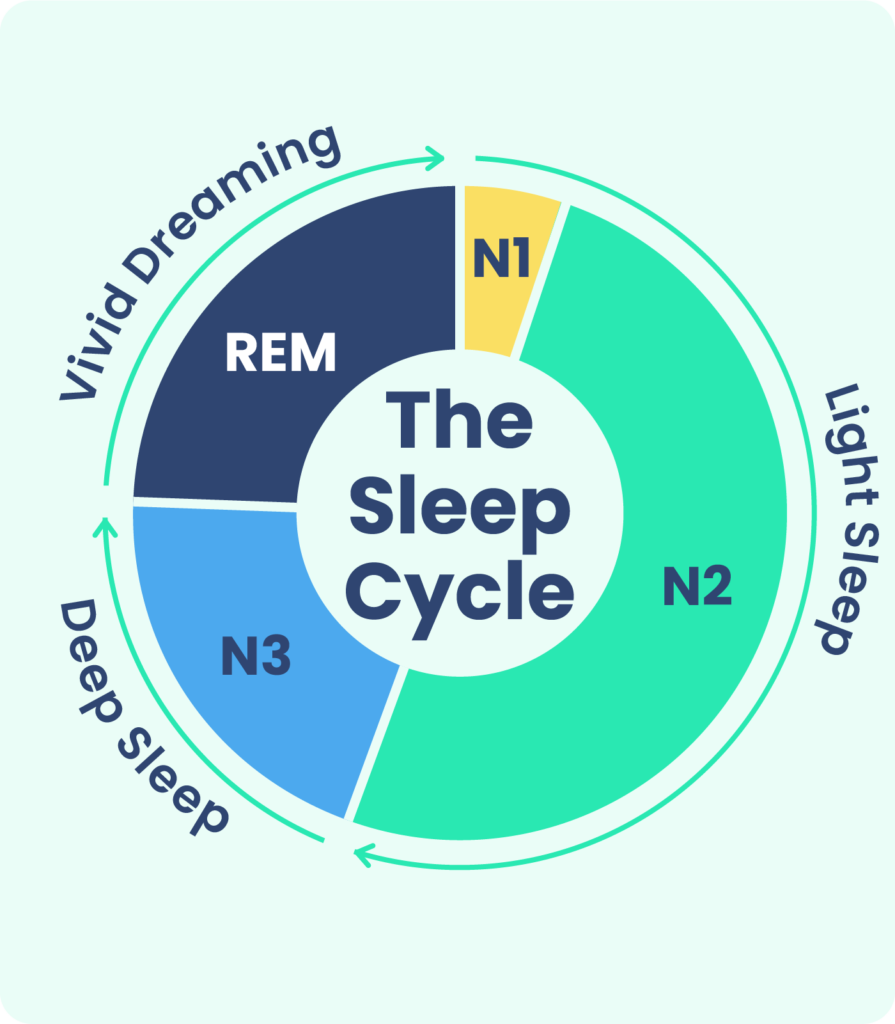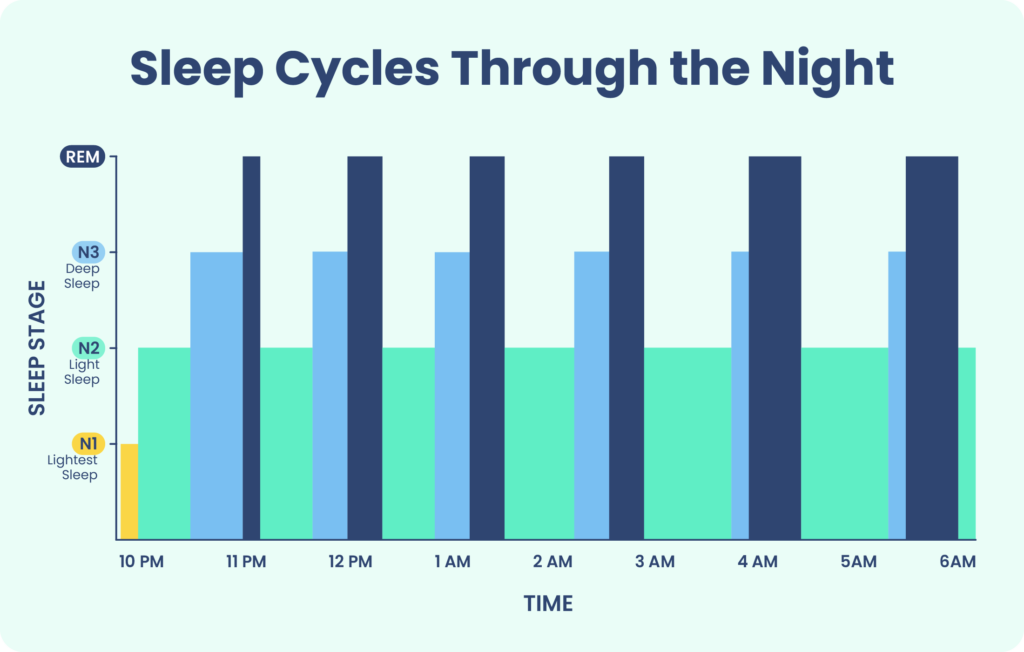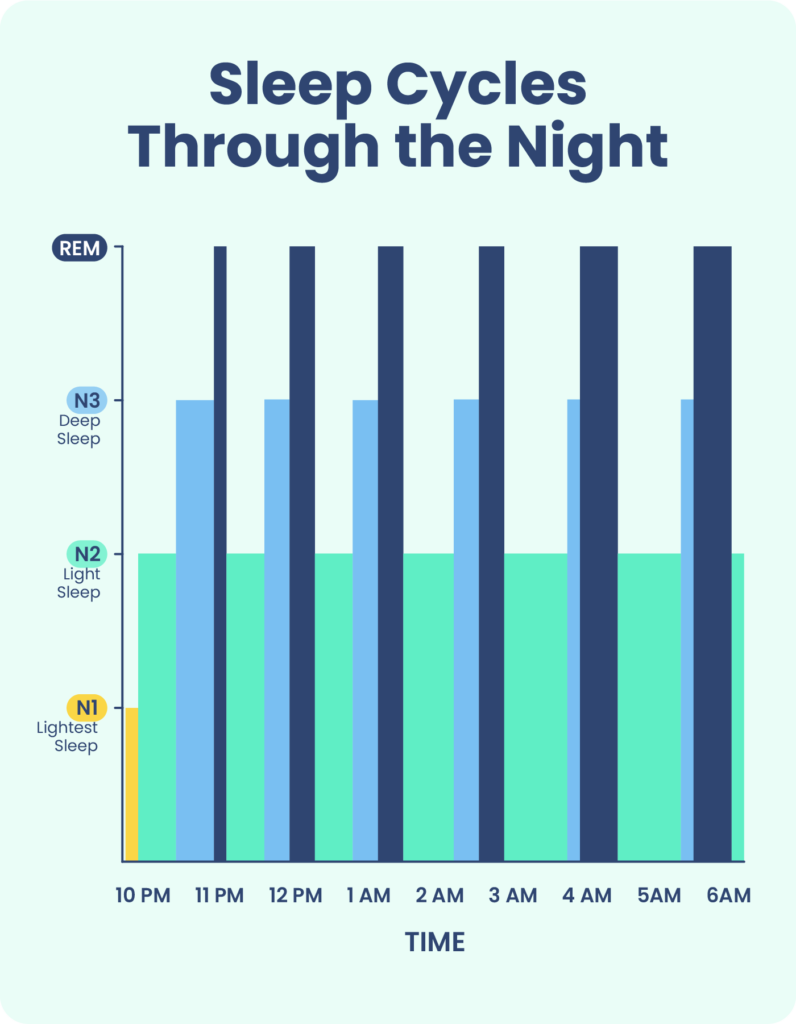
If you’re 26-64 years old and want to at ,
you should at one of the following times:
Sleep is a critical pillar of health. The quality of your sleep impacts core metabolic functions like immunity, cardiovascular health, and cognition. Use the sleep calculator to develop an optimal sleep schedule based on your unique biology and lifestyle preferences, including your age and either your bedtime or wake-up time. The sleep calculator is simple to use and ensures your schedule allows ample time for rest.
Answer three questions to take charge of your sleep.
Snore loudly? Tired during the day? Wake up short of breath? See Your Risk Please select all optionsSome people do not know how much sleep they should get or simply do not budget enough time for sleep Trusted Source National Library of Medicine, Biotech Information The National Center for Biotechnology Information advances science and health by providing access to biomedical and genomic information. View Source . Most adults should get seven to nine hours of sleep per night. Babies, young children, and adolescents need more sleep than adults do. These sleep recommendations provide an overview of how much sleep most people need, but the exact amount of sleep a specific person should get depends on other factors Trusted Source National Library of Medicine, Biotech Information The National Center for Biotechnology Information advances science and health by providing access to biomedical and genomic information. View Source , such as their overall health. A doctor is in the best position to make a detailed sleep recommendation for any individual based on their unique situation.
| Age Range | Recommended Daily Sleep | |
|---|---|---|
| Infant | 4–12 months | 12-16 hours (including naps) |
| Toddler | 1–2 years | 11-14 hours (including naps) |
| Preschool | 3–5 years | 10-13 hours (including naps) |
| School-age | 6-12 years | 9-12 hours |
| Teens | 13-18 years | 8-10 hours |
| Adult | 18 years and older | 7 or more hours |





There is no “one size fits all” bedtime, but there are ways to determine optimal bed and wake-up times based on age, geographic location, lifestyle preferences, and obligations like work and school.
Experts suggest waking up and falling asleep at the same time each day, even on weekends and days off. It is also generally healthiest to be awake during the majority of daylight hours, and asleep during dark periods.
It is important to choose a wake-up time that fits well with your schedule, but also ensures that you are not disrupting a sleep cycle. Waking up in the middle of a sleep cycle can leave residual feelings of sleepiness, and can compromise cognitive function and mood Trusted Source National Library of Medicine, Biotech Information The National Center for Biotechnology Information advances science and health by providing access to biomedical and genomic information. View Source during the day.
The average adult cycles through each stage of sleep several times per night, with each sleep cycle lasting approximately 90 to 120 minutes Trusted Source Merck Manual First published in 1899 as a small reference book for physicians and pharmacists, the Manual grew in size and scope to become one of the most widely used comprehensive medical resources for professionals and consumers. View Source . Aim to set a wake-up time that allots for at least four full sleep cycles. For optimal accuracy, use the sleep calculator to determine the best wake-up time based on your age and bedtime.
Sleep is critical for nearly every system Trusted Source National Institute of Neurological Disorders and Stroke (NINDS) NINDS aims to seek fundamental knowledge about the brain and nervous system and to use that knowledge to reduce the burden of neurological disease. View Source of the body. Getting enough sleep each night allows the mind and body to reap sleep’s restorative benefits and avoid the consequences of sleep deprivation.
From an outside perspective, all sleep may look the same, but in reality, it involves complex processes with four distinct stages that make up a sleep cycle. On a typical night, an individual cycles through all four sleep stages in order several times.


The first three stages of the sleep cycle are collectively known as non-rapid eye movement sleep (NREM). Stages 1 and 2 are lighter sleep, during which the body and mind begin to relax and slow down. Stage 3 is deep sleep, which is believed to be vital for both physical and mental recuperation.
The fourth stage of sleep is rapid eye movement (REM) sleep. In this stage, most of the body is temporarily paralyzed, but brain activity dramatically increases and the eyes rapidly move behind closed lids. The most intense dreaming occurs during REM sleep, which empowers memory and complex thinking when a person is awake.


In the earlier sleep cycles of the night, more time is spent in NREM sleep. In later sleep cycles, we experience more REM sleep. Researchers believe the combination of NREM and REM sleep over the course of the night is what enables you to wake up refreshed both physically and mentally. When you do not get enough sleep, you do not properly progress through these sleep cycles. Without the proper balance of NREM and REM sleep, you will not get the rest that you need, which can lead to widespread repercussions for health and well-being.
Sleep deprivation has short and long term impacts on physical, emotional, and cognitive health Trusted Source National Heart, Lung, and Blood Institute (NHLBI) The NHLBI is the nation's leader in the prevention and treatment of heart, lung, blood and sleep disorders. View Source . Immediately following a night of poor sleep, you may experience lack of energy or excessive daytime sleepiness that makes it hard to focus. You may doze off unexpectedly, which can be especially risky while driving.
You may not completely fall asleep, but your reaction time is worsened, which can increase the risk of accidents. Sleep deprivation is associated with irritability and mood problems Trusted Source National Library of Medicine, Biotech Information The National Center for Biotechnology Information advances science and health by providing access to biomedical and genomic information. View Source , and can hinder cognitive processes including memory, decision-making, and problem-solving abilities. As a result, you may suffer lower academic achievement or reduced work productivity.
Lack of sleep can also negatively affect physical performance and impair your immune system, increasing the risk of infections. On a long-term basis, lack of sleep has been linked to a wide range of health problems Trusted Source National Library of Medicine, Biotech Information The National Center for Biotechnology Information advances science and health by providing access to biomedical and genomic information. View Source , including weight gain and obesity, diabetes, heart disease and other cardiovascular issues, depression and anxiety, pain, and hormonal abnormalities. Studies have consistently found lack of sleep to be affiliated with reduced quantity and quality of life.
A number of simple lifestyle changes can be implemented to improve sleep, which can lead to better physical, cognitive, and emotional wellness.